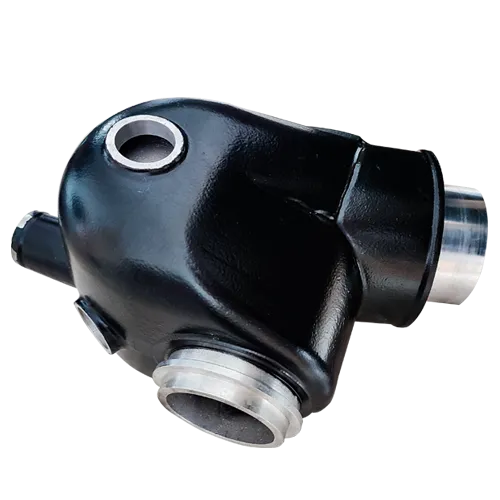Mobile:+86-311-808-126-83
Email:info@ydcastings.com
Enhancing Performance with Innovative Floating Impeller Technologies for Fluid Dynamics Applications
Understanding Floating Impellers A Key Component in Fluid Dynamics
Floating impellers are critical components used in various industries, particularly in fluid dynamics and mixing processes. Designed to optimize the movement of fluids, these innovative devices offer numerous advantages in both small-scale and large-scale applications. This article aims to delve into the functionalities, advantages, and applications of floating impellers, shedding light on their importance in enhancing processes across different sectors.
What is a Floating Impeller?
A floating impeller is a type of mixer that uses blades or vanes to impart motion to a fluid. Unlike traditional impellers that are fixed in a position, floating impellers are designed to move freely within the fluid. This characteristic enables them to adjust dynamically to the fluid's density and viscosity, which is particularly beneficial in handling mixtures with variable properties.
Typically, floating impellers consist of a hub from which multiple blades extend outward. The design ensures that as the impeller rotates, it generates flow patterns that enhance the mixing of materials. This capability is vital in applications where thorough mixing is required, such as in chemical processing, wastewater treatment, and food production.
Advantages of Floating Impellers
1. Enhanced Mixing Efficiency Floating impellers are engineered to create robust flow patterns, resulting in better homogenization of fluid mixtures. This is especially important in applications where uniformity is paramount, such as in the pharmaceutical industry, where precise formulations are crucial.
2. Adaptability One of the standout features of floating impellers is their ability to adapt to varying operational conditions. They can respond to changes in fluid density and viscosity without requiring adjustments to the system, making them versatile tools in dynamic environments.
3. Reduced Energy Consumption Because floating impellers can optimize flow and mixing rates, they can often operate at lower speeds compared to fixed impellers. This reduction in energy consumption leads to cost savings over time, which is advantageous for large-scale operations where energy costs can be significant.
floating impeller

4. Ease of Maintenance Floating impellers are generally easier to install and maintain due to their modular design. This accessibility can lead to reduced downtime in industrial operations, allowing for more efficient production processes.
Applications of Floating Impellers
Floating impellers are utilized in a variety of fields, showcasing their versatility.
- Chemical Processing In the chemical industry, floating impellers are employed to mix reagents or catalysts with reactants, ensuring that the chemical reactions occur uniformly and efficiently.
- Wastewater Treatment In treatment facilities, floating impellers help to mix and aerate wastewater, promoting the growth of microorganisms that are essential for breaking down organic material.
- Food and Beverage Production The food industry relies on floating impellers for the mixing of ingredients, which is vital in processes such as emulsification and fermentation.
- Pharmaceutical Manufacturing The pharmaceutical sector utilizes floating impellers to ensure that active ingredients are thoroughly dispersed in solutions, resulting in consistent and effective products.
Conclusion
In conclusion, floating impellers play an invaluable role in enhancing fluid mixing across various industries. Their unique design allows them to adapt to changing conditions while providing efficient mixing solutions that save energy and reduce operational costs. As industries continue to evolve, the reliance on advanced technologies like floating impellers will likely increase, highlighting the importance of effective fluid dynamics in modern manufacturing and processing applications. Exploring and investing in such technologies can ultimately lead to greater efficiency and innovation across multiple sectors.
-
Why Should You Invest in Superior Pump Castings for Your Equipment?NewsJun.09,2025
-
Unlock Performance Potential with Stainless Impellers and Aluminum End CapsNewsJun.09,2025
-
Revolutionize Your Machinery with Superior Cast Iron and Aluminum ComponentsNewsJun.09,2025
-
Revolutionize Fluid Dynamics with Premium Pump ComponentsNewsJun.09,2025
-
Optimizing Industrial Systems with Essential Valve ComponentsNewsJun.09,2025
-
Elevate Grid Efficiency with High-Precision Power CastingsNewsJun.09,2025











